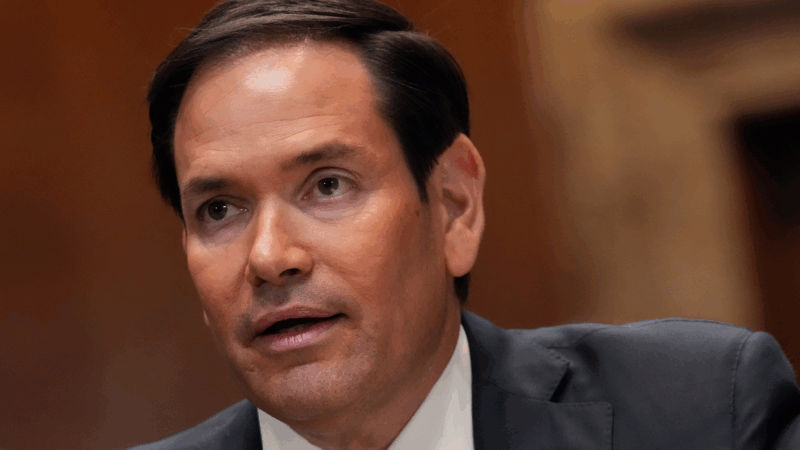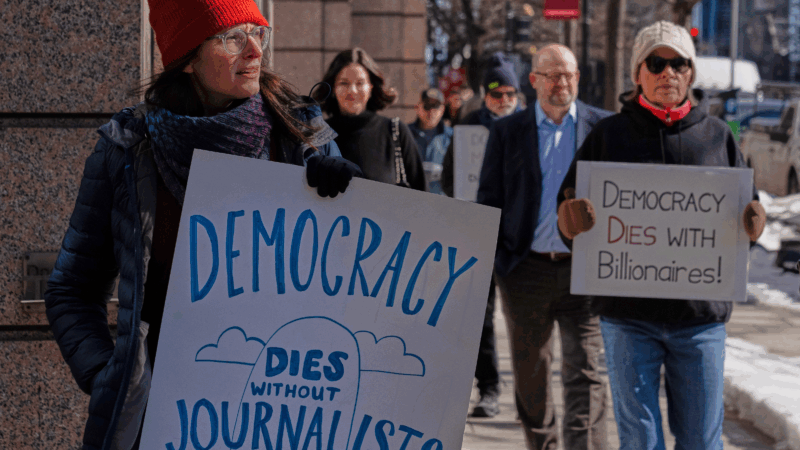Rubio says U.S. will ‘aggressively’ revoke visas for many Chinese students
In the latest and most drastic move yet to curtail the numbers of international students studying in the U.S. the federal government will “aggressively” revoke visas from Chinese students and enhance scrutiny for future applicants, according to Secretary of State Marco Rubio.
“Under President Trump’s leadership, the U.S. State Department will work with the Department of Homeland Security to aggressively revoke visas for Chinese students, including those with connections to the Chinese Communist Party or studying in critical fields,” Rubio said in a statement. “We will also revise visa criteria to enhance scrutiny of all future visa applications from the People’s Republic of China and Hong Kong.”
Depending on how broadly the State Department and Department of Homeland Security define these criteria, the edict could affect many of the 280,000 or so Chinese high school, university, and graduate level students currently in the U.S.
Rubio did not define what he meant by “critical fields,” but he likely means students working in areas like semiconductor engineer or aerospace where the U.S. and China are technological rivals. During the first Trump administration, thousands of mostly graduate-level Chinese students had their visas revoked, particularly if their research was in cutting-edge engineering fields that may have dual-use applications.
The newest move to pare back the numbers of Chinese students in the U.S. will likely further strain a bilateral relationship that has been imperiled by another trade war and serious technological competition over artificial intelligence and semiconductor chips.
Revoking visas from Chinese students is also yet another blow to the American higher education system, from which the Trump administration has cut billions of dollars of funding. Some smaller, private colleges and boarding schools have come to rely financially on foreign students, who tend to pay full tuition. For decades, prestigious research universities have also been able to recruit from vast pools of talented and highly-educated students from China.
Earlier this spring, the Trump administration abruptly terminated the records of about 1,800 international students, including some Chinese citizens, from a national database, a move that jeopardized their student visas and which was challenged by dozens of lawsuits nationwide. The termination of those records in what is called the SEVIS database was ultimately reversed by a federal judge, but immigration officials said they would still pursue more restrictive policies for foreign students.
This week, the State Department said in a cable it was pausing interview signups for student visa applicants in order to adequately screen their social media profiles, prompting waves of anxiety among Chinese students in the process of finalizing their student visas to the U.S. for the upcoming fall semester.
China’s foreign ministry this week called on the U.S. to “protect the legitimate rights and interests of international students, including those of Chinese students.”
For decades, China was the biggest source of international students to the U.S., but those figures have declined steadily after tensions with the U.S. worsened and a global coronavirus pandemic temporarily closed borders. Last year, the volume of students hailing from India eclipsed China.
Pentagon says it’s cutting ties with ‘woke’ Harvard, ending military training
Amid an ongoing standoff between Harvard and the White House, the Defense Department said it plans to cut ties with the Ivy League — ending military training, fellowships and certificate programs.
‘Washington Post’ CEO resigns after going AWOL during massive job cuts
Washington Post chief executive and publisher Will Lewis has resigned just days after the newspaper announced massive layoffs.
In this Icelandic drama, a couple quietly drifts apart
Icelandic director Hlynur Pálmason weaves scenes of quiet domestic life against the backdrop of an arresting landscape in his newest film.
After the Fall: How Olympic figure skaters soar after stumbling on the ice
Olympic figure skating is often seems to take athletes to the very edge of perfection, but even the greatest stumble and fall. How do they pull themselves together again on the biggest world stage? Toughness, poise and practice.
They’re cured of leprosy. Why do they still live in leprosy colonies?
Leprosy is one of the least contagious diseases around — and perhaps one of the most misunderstood. The colonies are relics of a not-too-distant past when those diagnosed with leprosy were exiled.
This season, ‘The Pitt’ is about what doesn’t happen in one day
The first season of The Pitt was about acute problems. The second is about chronic ones.







